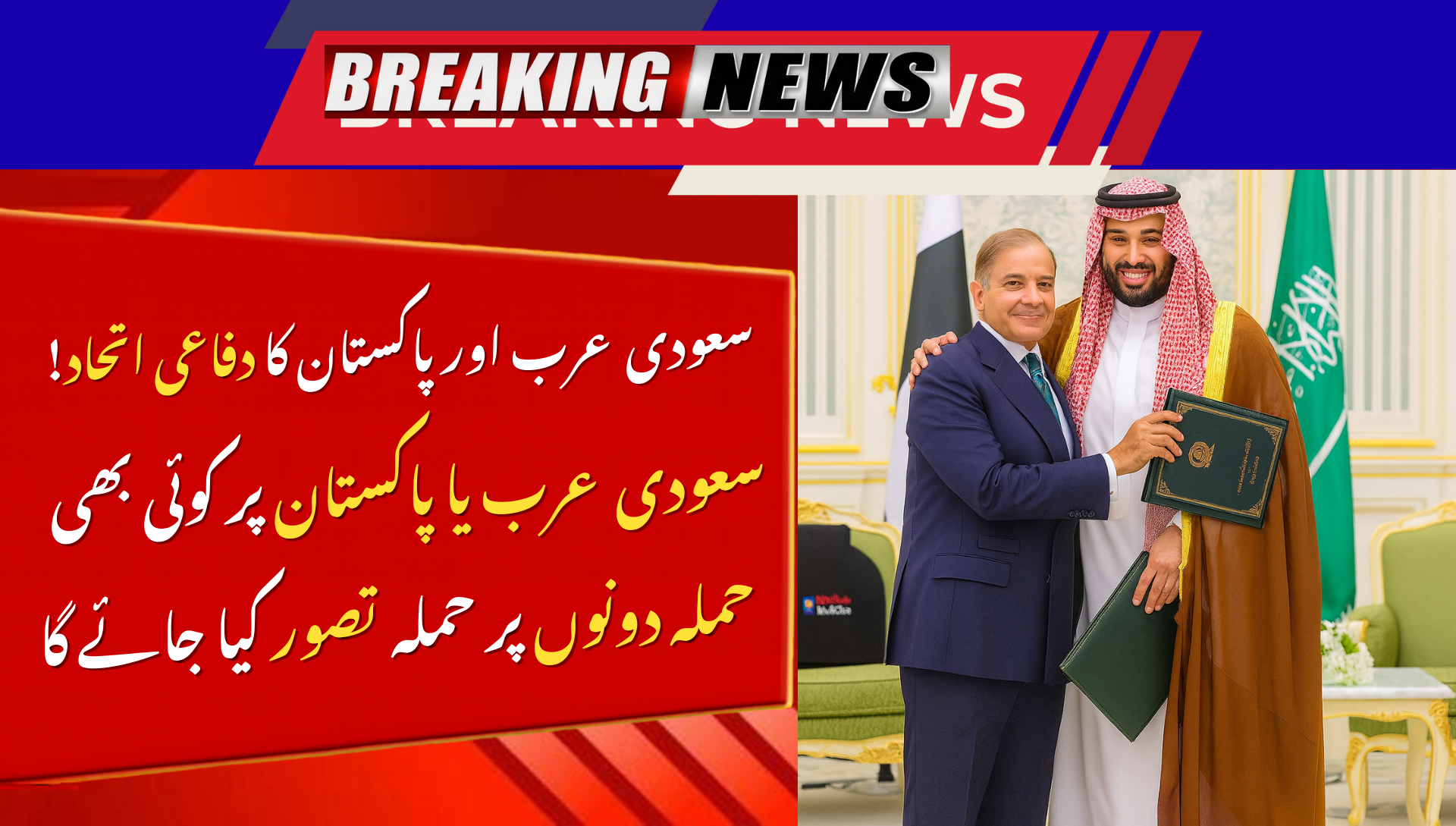Saudi Arabia Signs Mutual Defence Pact with Nuclear-Armed Pakistan In 2025

Saudi Arabia Signs Mutual Defence Pact with Nuclear-Armed Pakistan In 2025. In a landmark development, Saudi Arabia and nuclear-armed Pakistan have signed a formal mutual defence pact in 2025. This agreement ensures that any aggression against either country will be considered an attack on both, significantly reinforcing decades-long military and strategic cooperation. Experts believe this pact is not only a diplomatic milestone but also a strong signal for regional stability in the Middle East and South Asia.
Key Highlights of the Saudi-Pakistan Mutual Defence Pact
The historic agreement signed by Saudi Crown Prince Mohammed bin Salman and Pakistani Prime Minister Shehbaz Sharif reflects deep-rooted trust, strategic alignment, and military collaboration between the two nations. Here’s what makes this pact significant:
Mutual Defence Clause
- Any attack on Saudi Arabia or Pakistan is considered an attack on both.
- Strengthens joint deterrence against external threats.
- Institutionalizes decades of military cooperation and strategic trust.
Defense Strengthening and Military Cooperation
- Joint exercises and enhanced training programs for armed forces.
- Development of modern defense technology and coordination.
- Cooperation in intelligence, cybersecurity, and nuclear security protocols.
Regional Stability and Strategic Interests
- Aims to maintain peace in the Middle East and South Asia.
- Supports counterterrorism efforts and regional security collaboration.
- Promotes stability in key economic corridors, including trade and energy supply.
Diplomatic Talks and Symbolic Gestures
During PM Shehbaz Sharif’s state visit to Riyadh, both leaders engaged in comprehensive discussions covering:
- Strategic partnership across defense, economy, and culture
- Regional and international developments
- Strengthening bilateral trade, energy, and people-to-people relations
Symbolic Diplomatic Moves:
- Saudi Air Force jets escorted PM Sharif’s plane into Riyadh airspace.
- A guard of honor welcomed the Pakistani delegation, emphasizing brotherly relations.
Comparison of Saudi-Pakistan Defence Cooperation (Before vs After 2025 Pact)
| Aspect | Before 2025 | After 2025 Pact |
|---|---|---|
| Mutual Defence | Informal agreements | Formal mutual defence clause |
| Military Exercises | Periodic | Regular, joint strategic exercises |
| Intelligence Sharing | Limited | Enhanced and structured sharing |
| Nuclear Security | Bilateral understanding | Institutionalized protocols |
| Regional Deterrence | Moderate | Strong, unified stance |
| Economic Collaboration | Existing trade ties | Integrated defence-economic cooperation |
Historical Background of Saudi-Pakistan Military Ties
Pakistan and Saudi Arabia share a longstanding military and strategic partnership, dating back to 1967:
- Over 8,200 Saudi armed forces personnel trained in Pakistan.
- Multiple joint exercises held across decades, enhancing interoperability.
- Cooperation rooted in Islamic brotherhood, shared interests, and regional stability goals.
This pact represents a formalization of these efforts, institutionalizing a framework for defense collaboration, intelligence sharing, and strategic deterrence.
Wider Impact and Future Cooperation
Both nations emphasized cooperation beyond defence, including:
Defense and Security
- Advanced military technology exchange.
- Joint development of defense strategies.
- Collaboration in cybersecurity and counterterrorism operations.
Trade and Economic Partnerships
- Integration of defense initiatives with economic corridors.
- Expansion of energy, infrastructure, and trade agreements.
- Strengthening Pakistan-Saudi investment flows and market access.
Cultural and People-to-People Exchange
- Academic and cultural programs for youth.
- Exchange programs in education, healthcare, and technical skills.
- Deepening mutual understanding and fostering goodwill.
Regional Implications of the Defence Pact
The pact’s timing coincides with geopolitical tensions, highlighting its strategic relevance:
- Comes shortly after the Arab League and OIC joint session following Israel’s attack on Doha.
- Reinforces Saudi-Pakistan cooperation as a regional deterrent.
- Demonstrates unity among Islamic nations in responding to security challenges.
Expert Analysis:
“This agreement is a culmination of years of discussions and reflects long-term strategic planning rather than a reaction to specific events,” said a senior Saudi official.
Key Leaders in Saudi-Pakistan Pact Discussions
| Country | Leader | Role |
|---|---|---|
| Saudi Arabia | Mohammed bin Salman | Crown Prince |
| Pakistan | Shehbaz Sharif | Prime Minister |
| Pakistan | Ishaq Dar | Deputy PM |
| Pakistan | Khawaja Asif | Defence Minister |
| Pakistan | Muhammad Aurangzeb | Finance Minister |
| Pakistan | Attaullah Tarar | Information Minister |
This comprehensive delegation underscores the broad scope of cooperation, including defense, economy, and diplomacy.
Strategic Significance of Nuclear-Armed Pakistan in the Pact
- The agreement includes all military means, including nuclear deterrence if necessary.
- Strengthens regional deterrence against any aggression in Middle East or South Asia.
- Balances Saudi security concerns while maintaining relations with India.
FAQs
Q1: Does the Saudi-Pakistan pact involve nuclear weapons?
Yes, the agreement covers all military means, including nuclear deterrence if required, ensuring strong joint security.
Q2: Is this pact aimed against a specific country?
No, the agreement institutionalizes long-standing cooperation and is not a reaction to any single nation or event.
Q3: How will this pact affect regional stability?
It strengthens deterrence, promotes peace, and ensures rapid response to external threats, contributing to Middle East and South Asia security.
Q4: Will economic ties benefit from this agreement?
Absolutely. Defense cooperation is expected to enhance trade, investment, and joint infrastructure projects.
Conclusion
The Saudi Arabia-Pakistan mutual defence pact in 2025 marks a historic turning point in regional security cooperation. With a formal commitment that any attack on one is an attack on both, the agreement solidifies decades of military partnership, enhances deterrence, and lays the groundwork for broader economic and cultural collaboration.





